future interview to allen ashley
Well, last year I’ve read Once and Future Cities; I would say it’s great! Allen Ashley made a masterful work – deep and thought provoking. I enjoyed the uniqueness, beauty, and attractive words; its so colorful!
Allen Ashley, with a complex and imaginative writing, ensures, always, one thing: originality.
I look forward with enthusiasm the new edition of his first book “The Planet Suite” and the anthology, edited by him, “Sensorama”; both will be published by Eibonvale Press.
1. Do you have a specific writing style?
Yes, I think I do, certainly with works above the flash fiction range. I consider myself something of a stylist so that the story should please the eye and sound good on the ear. My stories deal with a regular range of concepts – identity, memory, perception, reality, the individual, the span of history, love and loss. Often with buried references – musical and otherwise. I once went on record as saying that you could take a paragraph out of any of my stories and recognise it as mine. This is, of course, a dangerous assertion. Philip K. Dick – himself a recognisable stylist with regular themes – made the completely opposite assertion that any random paragraph from one of his pages would look just like anybody else’s. In my defence, I think of a writer like J. G. Ballard at his peak – even a sentence from him is recognisable as his and nobody else’s.
Sometimes I equate an individual fiction writing style with that of musicians. Thus, if you hear a song by, say, Kate Bush or The Byrds or Neil Young they will have put their own definitive stamp on it. Take The Beatles – no one would remember them now if they had simply carried on playing rock ‘n’ roll covers for 8 hours a night in a Hamburg bar or settled into a role as Tony Sheridan’s backing band. Instead, they developed their own unique sound and created the cultural revolution of the 1960s. Along with Bob Dylan and a few others.
I am always telling writers to develop their own voice. It’s probably counter-productive in terms of personal success because many publishers seem to want you to write just like whomever they consider to be the default successful template… but, hey, who wants to sound exactly like everybody else? Of current writers – Nina Allan, Rhys Hughes, Andrew Hook and the late Joel Lane all have a distinctive, personal style.
2. What books have most influenced your life?
Having attended two church schools as a primary aged child, I find that I quite often quote – rather vaguely – from “The Bible”. When I was boy, I had already read “The War of the Worlds” and “The Lost World”; then my school had a book fair and I purchased Arthur C. Clarke’s “The City and the Stars”. That was it: I was forever hooked on science fiction.
3. If you had to choose, which writer would you consider a mentor?
As a short story specialist, if I had to name one author it would undoubtedly be J. G. Ballard. I love the risks that he took within the short form, especially in a collection such as “The Atrocity Exhibition”. As a poet and sometimes singer, songwriter and general performer, I find that there is always a touch of Robert Calvert in my demeanour. Calvert was a poet, playwright, singer and musician who is best known for his association with the rock band Hawkwind: he wrote the lyrics for their major hit “Silver Machine”.
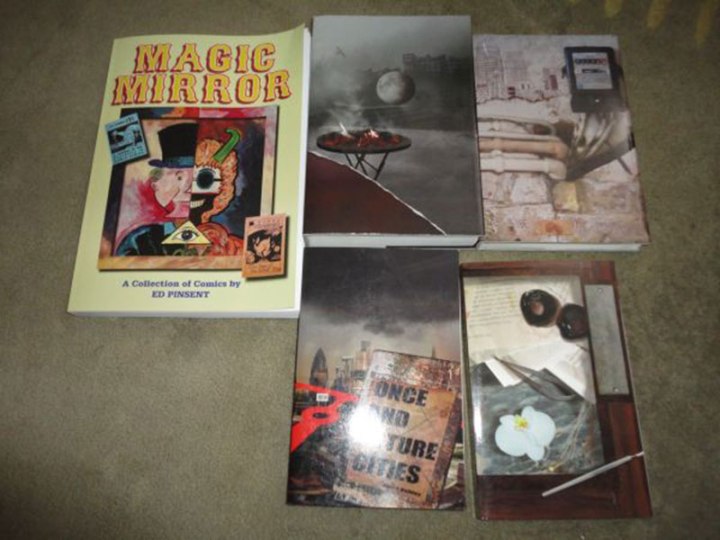
once and future cities
Can I name a few inspirers as editors as well? In this area I look to emulate the work of Judith Merril, Michael Moorcock, Harlan Ellison and Andrew Hook.
4. What are your current projects?
At point of writing – mid-January 2015 – I am guest-editing an issue of the online magazine “Sein und Werden” with the theme “The Restless Consumer”.
Here’s the link: http://www.kissthewitch.co.uk/seinundwerden/next_issue.html
On March 1st, I open for submissions to my next editorial project “Creeping Crawlers”, which I’m editing for Shadow Publishing.
Here’s the link: http://www.shadowpublishing.webeasysite.co.uk/index.html
I will be judging the British Fantasy Society Short Story Competition again this year.
Lastly, I’ve also set myself an ambitious target of writing half a century of different pieces of writing known as “The Fifty Project”.
Busy times!
5. How much research do you do?
That depends on the particular story, poem or article that I am working on at that point. I’ve undertaken all sorts of research – places visited, books devoured, buses caught, walks taken, even going so far as to deliberately poke myself in the eye to make sure that I recorded the correct resultant colours! These days, I suppose, research is a little easier with the availability of well-researched articles instantly accessible on Wikipedia and the like. They have a reasonably high degree of accuracy. I wouldn’t recommend this technique for your university essays but for when you simply need a snippet of straightforward information or clear answers – such as names of characters in mythology, etc – one can happily and rapidly research from one’s sofa. So I do.
6. Do you write full-time or part-time?
As well as writing, editing, event hosting and critically reading, I also run five creative writing groups. So, effectively, I write full time.
7. Where do your ideas come from?
This is the question that authors apparently can’t stand. However, it’s the one that interested readers usually want answered. I’ve given a few responses to this over the years. One was my story “The Ideas Mountain” in my collection “Urban Fantastic” (Crowswing Books, 2006) in which I facetiously created an actual secret mountain somewhere along the border between France and Belgium to which writers would make the occasional trek and dig out a handful of ideas to power them through their next project. Also, I have published a couple of articles such as “Birth of a Story” and “Unlikely Inspirations” which deal with specific stories. And I think that’s the answer to your question – each story has its own particular inspiration. It can be all sorts of things – a newspaper article, a conversation, my thoughts on someone’s guidelines for an anthology, a response to another artwork, something I’ve been thinking about whilst lying in bed at seven in the morning… Take your inspiration wherever you can and keep a notebook or a file on your computer along with a back-up on the memory stick.
8. How can readers discover more about you and you work?
My website is at www.allenashley.com but I have to own up that I have let it slip a little out of date. I promise to update it thoroughly very soon. There are photos, stories, quotes, links, whatever relating to me all over the internet. If you Google me, it’s “Allen Ashley” not “Ashley Allen” the ex-“Playboy” model! Or people can contact me via this address allen@allenashley.com which will forward to one of my email accounts.
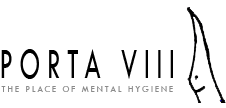
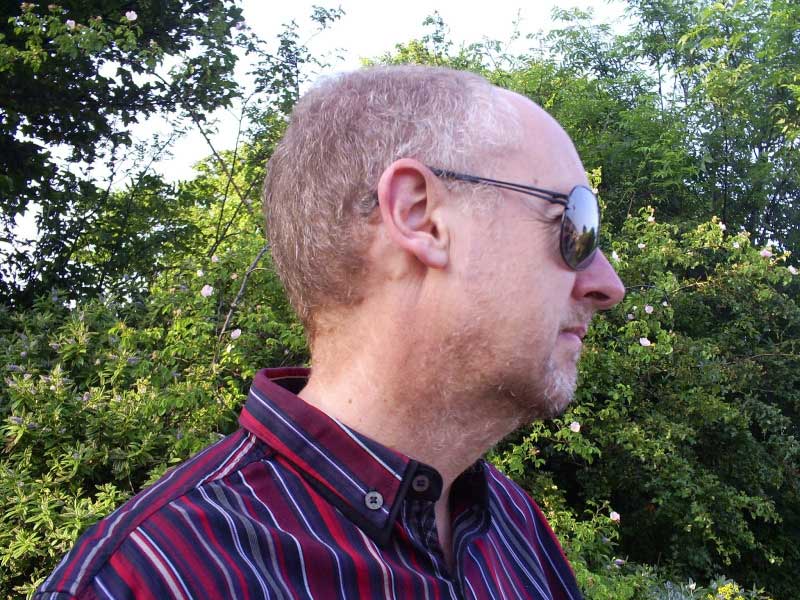
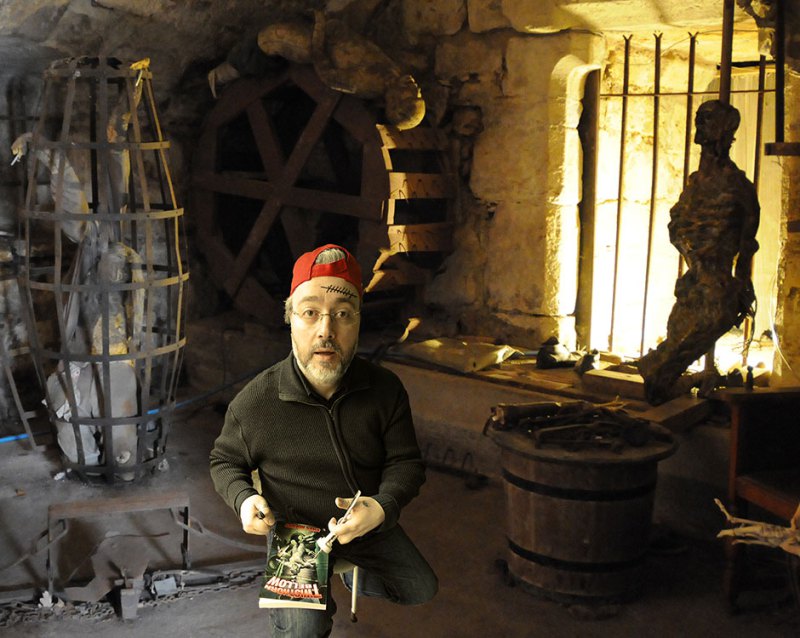
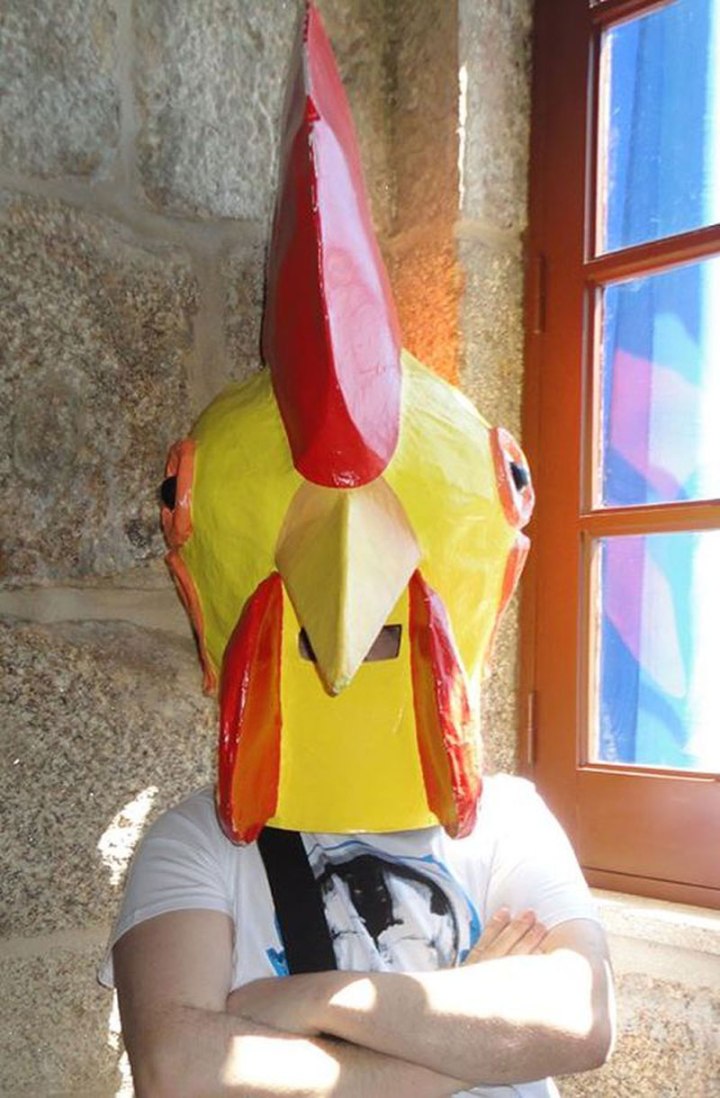
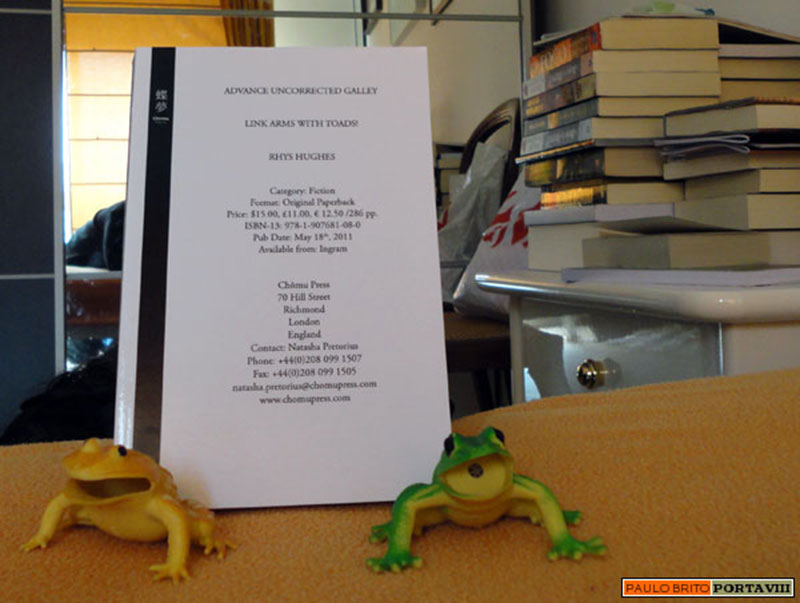
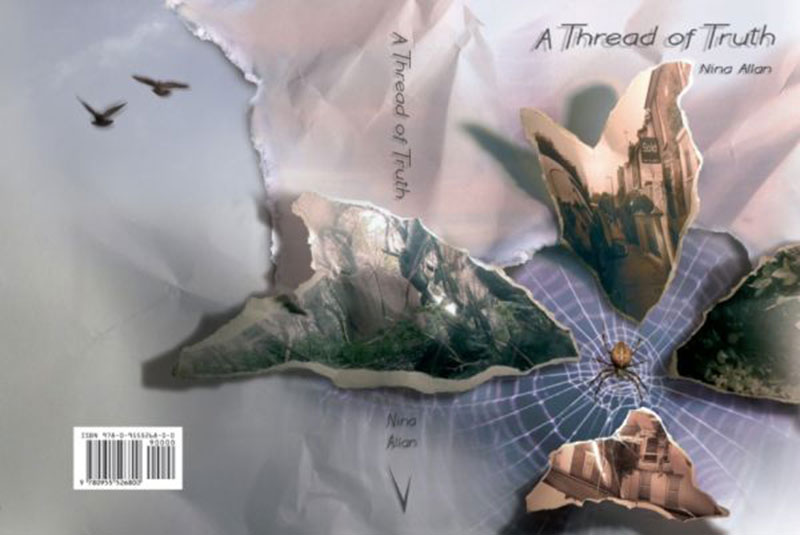

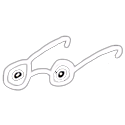


Deixar uma resposta
Want to join the discussion?Feel free to contribute!